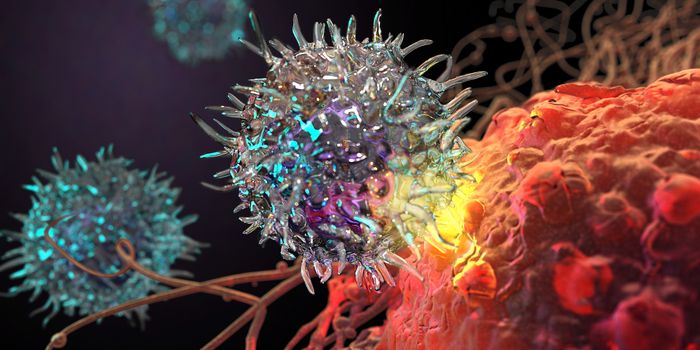The Right Statins Could Help Treat Ovarian Cancer
Statins are often prescribed to help lower cholesterol levels, especially for patients at high risk for coronary heart disease. Scientists have also observed that this compound can be effective against cancer cells. However, when tested in clinical trials, results for statins don’t seem to measure up to the laboratory findings. Now, researchers from Keele University say these studies were unfruitful because they used the wrong type of statins.
High cholesterol is a risk factor for heart disease, which is the leading cause of death in both men and women. To help patients for whom diet and lifestyle changes aren’t quite enough, doctors often prescribe statins, formally known as HMG-CoA reductase inhibitors. As its name suggests, statins work to lower cholesterol by blocking a key enzyme, HMG-CoA reductase, which has a central role in the production of cholesterol. Though the primary outcome of statin use is reduced cholesterol, researchers have reported evidence that statins also reduce the risk for some cancer types. But while statins were effective against cancer cells in the lab, the effects don't seem to hold up when tested in patients.
When this conundrum was studied in detail, scientists from Keele University found that the type of statin really makes the difference. "We believe we have found the answer to the paradox: for statins to be effective as a cancer therapy, the right statin needs to be used, it needs to be delivered at the right dose and interval, and diet needs to be controlled to reduce sources of geranylgeraniol, which can limit the statin's effect on cancer cells,” explained Dr. Alan Richardson, the study’s lead author.
In particular, Richardson’s team found that a specific statin, known as pitavastatin, is particularly effective against ovarian cancer. The compound has a long metabolic half-life, which allows it to block the cancer’s growth signals for longer. Moreover, the compound’s structure also inhibits cancer’s growth in animal studies.
While no clinical trials have been done to test pitavastatin’s effects in ovarian cancer yet, scientists analyzed retrospective data and found a link between pitavastatin and lower incidence of cancer-related deaths in patients who were taking the drug for cholesterol purposes.
"Our research found that the tumour-inhibiting effects of pitavastatin in mice were limited when dietary geranylgeraniol was present. Statins work in cancer by preventing cancer cells making geranylgeraniol. However, geranylgeraniol is present in various foods including sunflower oil and some rice, so in future clinical trials, we need to carefully control diet to limit geranylgeraniol,” Richardson said.
Given this new insight, Richardson’s team are already planning clinical trials specific to ovarian cancer and pitavastatin. They hope to find an alternative therapy that, perhaps in combination with other chemotherapies, may improve the outcome for ovarian cancer patients.
"The key message of our work is that clinical trials of pitavastatin can now be properly designed, and we are in the very early stages of developing trials with our colleagues at Keele University and Birmingham University. It is also noteworthy that pitavastatin is available in a generic form, potentially making this a relatively inexpensive treatment,” he said.
Additional source: Keele University









